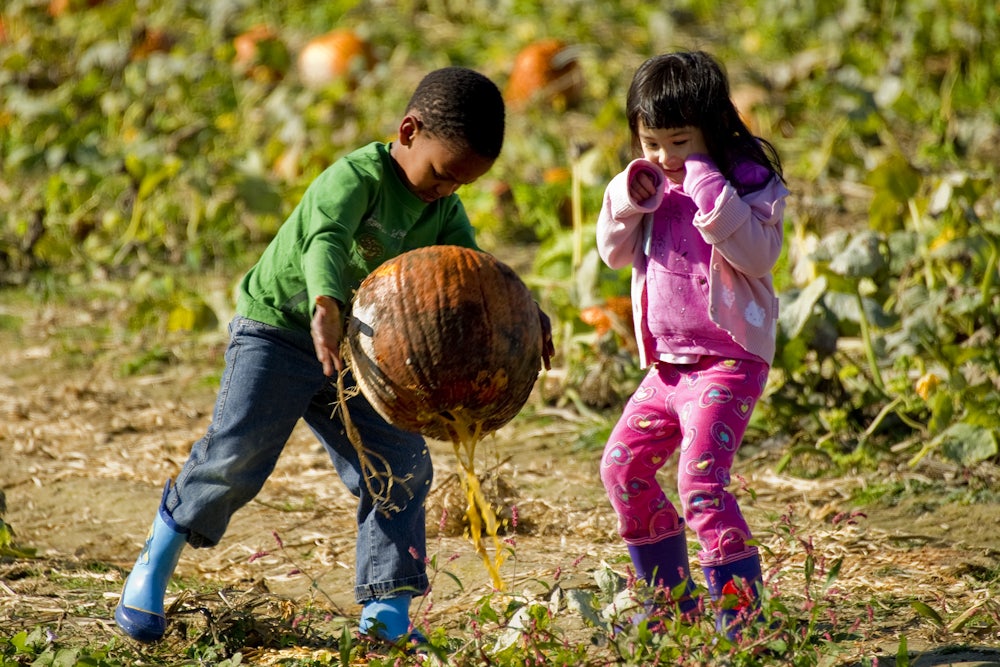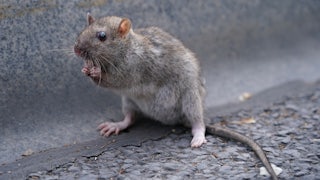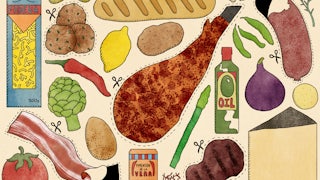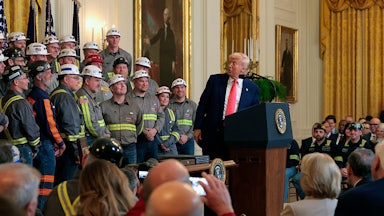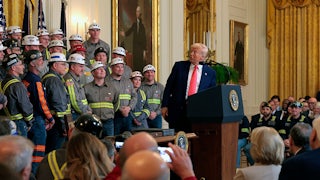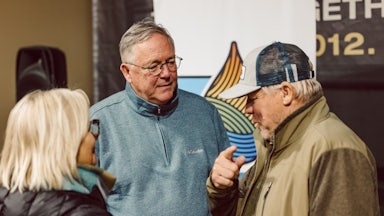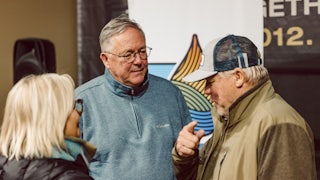Every October, I buy a bunch of tiny pumpkins for the table. When I saw them in the store last week, I was startled. How could it be that time already? I was wearing sandals. But there was nothing freakish about the pumpkins’ arrival. They were right on schedule. The weird part is everything else. It is still over 70 degrees in New York City on most days. I haven’t worn a sweater yet. I made a caprese salad the other day because the tomatoes are still decent. The roses in my garden are still blooming, even climbing the trellis.
Compared to our big-ticket climate change fears—more species loss, danger to our own families, mass human extinction—none of this is a big deal. But the absence of fall weather in the places we most expect it deprives many of us of cherished and comforting rituals. This has been triggering a mix of reactions in the culture. Many people miss fall:
I know I should be enjoying the warm early fall weather but I am just so ready to curl into the fetal position under a pile of chunky oversized sweaters and call it a year
— ellie schnitt (@holy_schnitt) October 8, 2021
Damn it's still too warm for fall attire pic.twitter.com/NyITwF8SrJ
— Dat Dude (@OSAnimated) October 7, 2021
In addition to this nostalgia for the brisk delights of fall, another reaction is flat-out denial, with some influencers aggressively ’gramming an autumn that has yet to arrive. But there is no escaping the fact that climate change is killing this season.
Fall is imagined as a comfortable and comforting time. It is most enthusiastically embraced by comfortable and comforted people. As Hazel Cills pointed out in an intriguing Jezebel essay last October, “the basic white girl who loves fall” is ubiquitous in American culture. The much-derided pumpkin spice latte evokes—or perhaps aspires to—an older kind of privilege: that of white Anglo-Saxon Protestants. In this world—or its Ralph Lauren photoshoot version—the lazy pleasures of hot weather are for plebes. Without leaves crunching underfoot, sweaters, shawls, hayrides, a bracing chill, and labor-intensive recreation like picking your own apples and baking pies, where would the WASP and her wannabes even be?
Alas for these previously timeless pleasures, in places most indelibly associated with storybook fall, a distressing balminess prevails. At this writing, it is 70 degrees in Burlington, Vermont. On Thursday it hit 72 in Freeport, Maine, L.L. Bean’s headquarters. On Friday it will be just as warm in Lenox, Massachusetts. How can we sit by the fire with a big dog and a hot drink under such conditions?
There’s evidence that climate change is depriving us of fall foliage. Warmer temperatures are causing leaves to stay green for longer, delaying the anticipated explosion of orange and red, or sometimes dulling it or skipping it altogether. Even in as cold a climate as northern Maine, USA Today reported at the end of September, forest rangers were reporting that fewer than 70 percent of leaves had changed color. Worse, in some places, drought is causing trees simply to drop their leaves before they turn. All this is complicating the practice of “leaf peeping,” as it becomes harder to find—or to plan a weekend trip around—the foliage.
Fall is also a celebration of harvest in an age when the effects of climate change—including drought, pests, heat waves, and wildfires—are threatening crops. Traditionally a time to be thankful for abundance, fall feels a bit darker as new risks to the food supply complicate the seasons’ joys.
The sense of menace around this harvest season and all it celebrates isn’t just an affect: The most iconic fruits of fall are suffering. A 2017 government-funded survey of Northeastern apple farmers found that climate change was causing increasing uncertainty in their business. Pumpkins, critical to rituals of both Halloween and Thanksgiving, don’t thrive in heavy rain, which was all too plentiful this summer. When the weather is too wet, pumpkins are vulnerable to blight, which is one reason why, one hyperbolic headline yells, “A Pumpkin Shortage May Ruin Your Holiday, Experts Warn.” (Subhed: “The Item is in Limited Stock at the Worst Time Possible.”)
While many people on Twitter are expressing nostalgia for the fall weather, most are doggedly trying to pretend that nothing is amiss. “BRING ON THE PUMPKIN SPICE!” a meteorologist tweets. “If you’ve been missing the fall weather, it will be back this weekend.” An article in USA Today on the decline in fall foliage was, on the newspaper’s website, bisected by promotions for articles urging fall activities (“It’s Fall, Y’All: Time to Leaf Peep”; “Apple picking, hiking, cider drinking: Find a socially distant escape in the Northeast”).
Those marketing the WASP autumnal aesthetic are not going gently into the lukewarm night. Martha Stewart is (on Instagram, at least) making chili, pumpkin-swirl cheesecake, and roasted butternut squash soup. She’s also innovatively decorating pumpkins without the usual mess of stringy innards. Lands’ End’s Instagram this week shows an adorable pug wrapped in a red flannel scarf. Kiel James Patrick—a New England entrepreneur with an eponymous Newport, Rhode Island–based store specializing in preppy fall clothing—and his wife, Sarah, have been posting about pumpkins and leaves to their combined 1.5 million followers since July. This week, on a trip to Woodstock, Vermont, the couple ’grammed rapturous images with implausible shades of orange. Although it hit 75 degrees in Woodstock on Wednesday, the family posed for its annual fall photo in 50-degree attire: she in a scarf and plaid flannel dress, he in a thick sweater.
We all deserve crisp fall hikes and hot cider donuts. But the world is changing. The culture of fall has been a celebration of abundance, and we now live in a world of terrifying scarcity. White-person fall represents a flight into comfort, but the comfortable are part of the problem. Smug privilege has caused this global crisis, and that’s what many will need to relinquish if the world is to avoid even more grievous losses.
